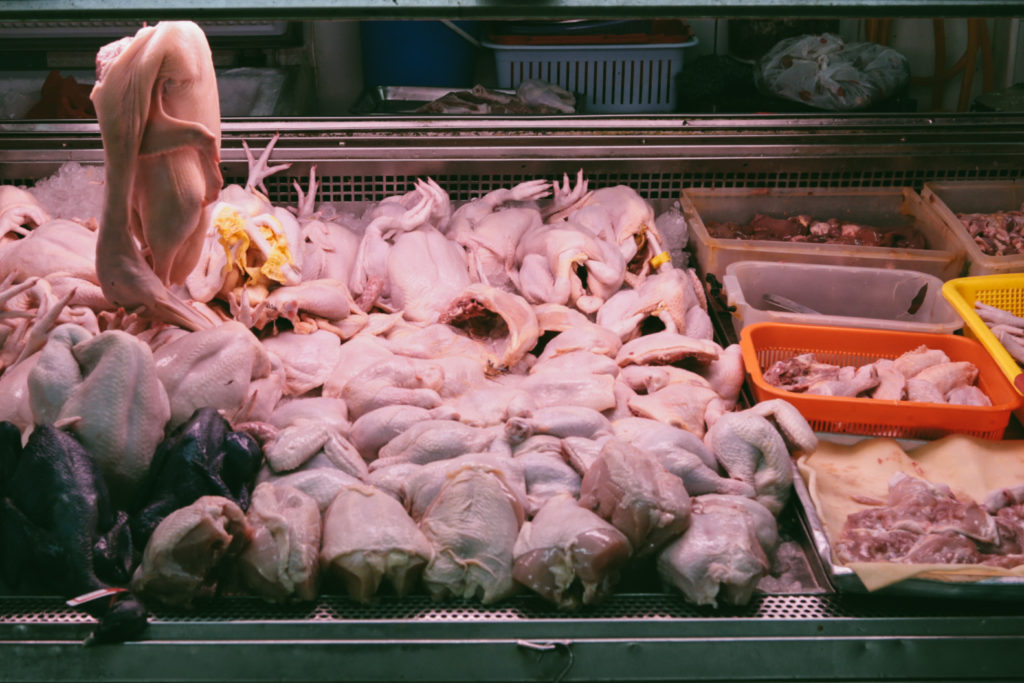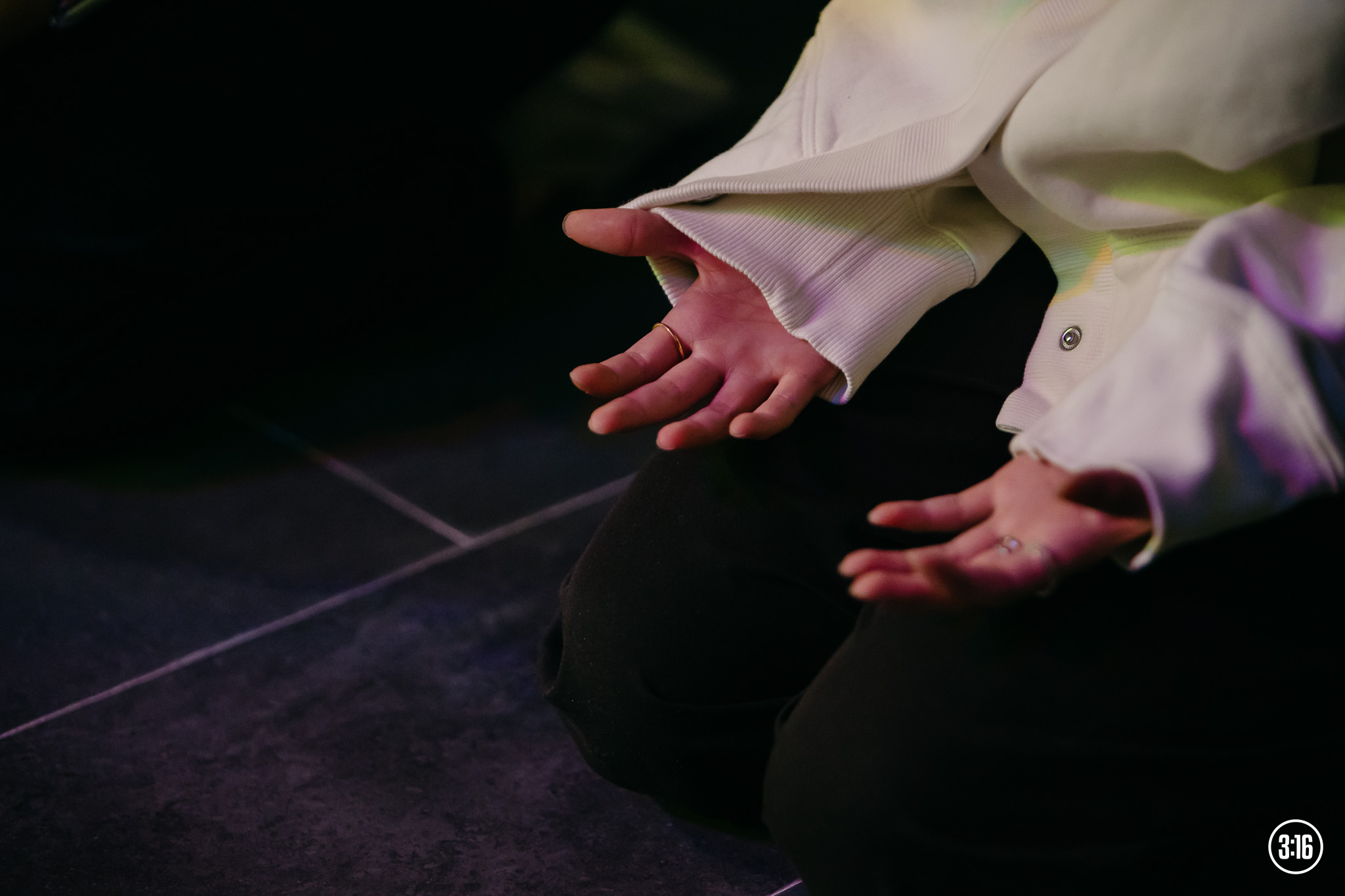The season of Lent has ended for the year – a time when many Christians fast in a posture of repentance and reflection.
Sometime last year, I began to placed myself on a pedestal, inscribed with the words “fully reliant on Christ and nothing else”. The things that happened in my life seemed to put me in a place where I thought I had surrendered my all to Him.
So it was that as people in church and elsewhere were discussing the process of fasting, I thought, “This isn’t for me, I don’t need to fast from anything since I’m not dependent on anything for survival.” Then this subtle, nagging thought entered my mind: “What about meat?”
Meat? Seriously, God?! But that means I’d have to eat vegetables only! Me, the one who “donates” my vegetables to my friends at every meal – and God wants me to give meat up?! No, simply no – I cannot do this, I thought.
But as the days led up to Lent, and as the impressions get stronger, I committed myself to the process, knowing that the season of fasting would teach me a lot. And true enough, the lessons I learnt far exceeded my expectations.
The first (and probably the biggest) lesson I learnt was how God remains good, no matter how hard our circumstances seem to be. One day before my fast, a couple of us were chatting about how blessed we are to get to bless others, and someone brought up about the idea that a blessing may appear to be a form of suffering at the time.
The revelation hit me: As children, faced with a plate of vegetables we’re told to finish, we might cry or even throw a tantrum, but our parents, knowing the nutrients the greens will give, insist that we eat it. Vegetables may not taste nice, but they are necessary for growth and ultimately beneficial for us.
When we choose to fast, nothing outside us changes, but something inside us must.
Similarly, what is a blessing may appear to be a source of suffering at the time.“No discipline seems pleasant at the time, but painful. Later on, however, it produces a harvest of righteousness and peace for those who have been trained by it.” (Hebrews 12:11)
God allows such situations to take place because they will help us grow in certain aspects. We may not see the growth opportunity, or accept that the suffering is beneficial at that moment. But we often do, in hindsight.
Second, God taught me about sin: Just like not eating meat, not sinning is a choice. When we choose to give up meat, nothing outside us changes, but something inside us must. Meat will be available at the hawker centre – it’s up to me to choose not to buy it. Likewise, temptation will always exist – it’s up to me to choose to act on the temptation or not.
I cracked thrice during my fast, eating meat in the comfort of my room, late at night. Likewise, we might engage in sinful activities within the four walls of our rooms, thinking that no one knows, but God knows, and His heart breaks whenever we sin. We think that nobody knows, but one day, the truth will surface. “For nothing is hidden that will not be made manifest, nor is anything secret that will not be known and come to light.” (Luke 8:17, ESV)
When we give in to temptation during a fast, there are two ways we can respond. Either we feel guilty and try to overcompensate, such as fasting entirely for the next day to make up for our mistake, or we give up and try to normalise our mistake, claiming that, hey, everyone messes up on their fasting occasionally.
Similarly, when we sin, in our guilt we sometimes attempt to overcompensate and make up for it by tithing more, praying more, and serving more, or we normalise sin by saying that, hey, everyone does it.
I came to the point where I realised that our doing can never undo our wrongdoings. “For by grace you have been saved through faith. And this is not your own doing; it is the gift of God, not a result of works, so that no one may boast.” (Ephesians 2:8-9, ESV)
We are saved from our sins and cleansed whole not because we place an offering of our time or talents on the altar – for there is no offering pure enough to take the weight of our sin. Jesus is the only blameless sacrifice who has the authority and right to give us the gift of salvation.
It made me think more about the norms in society. The large majority of people may do certain things, but the Bible warns us,
“Do not be conformed to this world, but be transformed by the renewal of your mind, that by testing you may discern what is the will of God, what is good and acceptable and perfect.” (Romans 12:2, ESV)
These norms range from falsely taking medical certificates, to skipping lessons, to cheating in quizzes, to cutting corners unethically in the corporate sector. But while the temptations are always present, the Bible promises us that “No temptation has overtaken you that is not common to man. God is faithful, and he will not let you be tempted beyond your ability, but with the temptation he will also provide the way of escape, that you may be able to endure it.” (1 Corinthians 10:13, ESV).
And true enough, I found ways to escape from the temptation to eat meat during my fast, such as going to a vegetarian restaurant and finding friends who also chose to fast from meat during Lent.

Third – and most unexpected – I found that fasting brought me to a place of thanksgiving. As Matthew 6:16 says, “And when you fast, do not look gloomy like the hypocrites, for they disfigure their faces that their fasting may be seen by others. Truly, I say to you, they have received their reward.”
I learnt to be contented with whatever food I had on my plate. I came to embrace the fact that the simplest of things can and will sustain me, that there is no need for extravagant food.
Fasting doesn’t have to take place during Lent; you can do so whenever God calls you to it, as a petition of prayer. Fasting is not supposed to only be for “special groups of people”, since Matthew 6:16 says “when you fast”, not “if you fast”.
I learnt to be contented with whatever food I had on my plate. I came to embrace the fact that the simplest of things can and will sustain me.
But that being said, we need to be watchful. Fasting is not about putting ourselves on the pedestal, showing off our godliness. “But when you fast, anoint your head and wash your face, that your fasting may not be seen by others but by your Father who is in secret. And your Father who sees in secret will reward you.” (Matthew 6:17-18, ESV).
I fell into the trap a couple of years back, just as I was getting right with God, I “fasted” during Lent, wanting people to see how godly I had become. I didn’t really understand the meaning behind fasting, nor did I center my fasting on God’s Word.
Fasting should always be driven by a desire to know God more – satisfying whatever we lack in the body with a deepening intimacy with Him.









